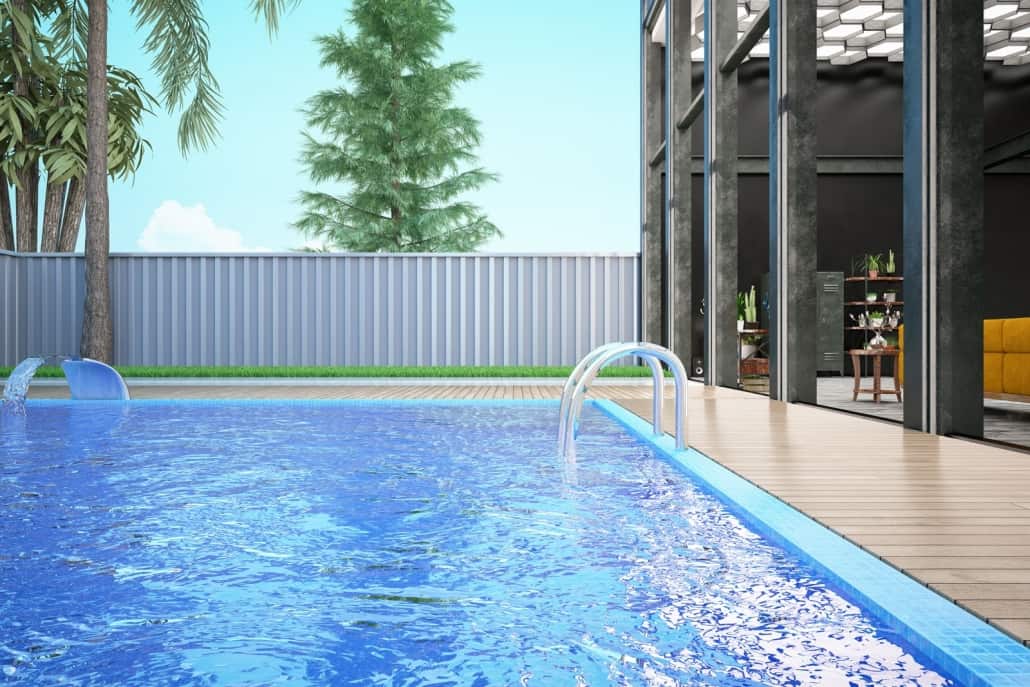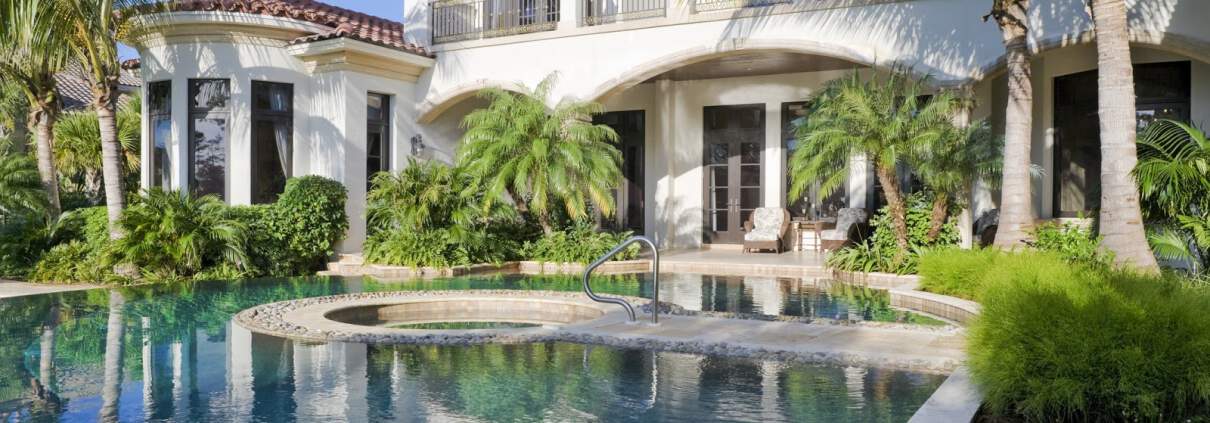Saltwater vs Chlorine Pools
If you’re a Southern California resident considering a new construction swimming pool or pool restoration, you may be debating between a saltwater pool and a chlorinated pool. There are pros and cons to each, and which you choose is going to depend entirely on your preferences and priorities as a pool owner. Whether it’s cost, maintenance, health and safety, or repairs you’re worried about most, we’re here to help you determine which pool option is most suited to your lifestyle.
Benefits of Saltwater Pools
Many people believe that saltwater pools do not contain chlorine at all. However, this is untrue. Saltwater pools differ from chlorinated pools in that they use electrolysis to turn salt into chlorine instead. They contain much lower chlorine levels than chlorinated pools, which is less harsh on your skin and eyes, but it still contains enough chlorine to adequately disinfect the water. Having lower chlorine levels makes saltwater pools a great choice for families that have small children or athletes. Less chlorine and other chemicals will help keep users as healthy as possible since it’s much gentler on the body.
Drawbacks of Saltwater Pools
The biggest deterrent from investing in a saltwater pool is just that – the investment. Saltwater pools have a much higher upfront cost than chlorinated pools. They also have higher maintenance and repair costs since the corrosive nature of salt requires special pool liners, lights, heaters, masonry, and other features specifically made for saltwater pools. Maintenance costs are also higher because a specialized technician is required for virtually all repairs. Saltwater pools have a much more complex system than chlorinated pools, so even small repairs require an expert.

Benefits of Chlorine Pools
Although it does have its drawbacks, chlorine pools are the most popular choice for a reason. The initial investment is less, and there’s no need to install specialized features or use specialized repair technicians. Chlorine pools also use less electricity than saltwater pools, which will help you save money on your utility bills over time. Saltwater pools require a special generator to convert salt into chlorine, whereas chlorine merely requires a pump to circulate the water in your pool. Chlorine pools will also not corrode or damage the fixtures in your pool, which will keep your pool looking better for longer and will cost you less in maintenance and pool repair costs.
Drawbacks of Chlorine Pools
The biggest drawback to a chlorine pool is the chlorine itself. High levels of chlorine are known to be harsh on your skin, hair, and eyes. If you or your family members spend a lot of time swimming, this can take a toll over time. You may even need to invest in special bath products that are formulated to remove chlorine more effectively. Chlorine pools also require strict chemical balancing in order to kill bacteria without harming swimmers. Constantly needing to check and balance chemical levels is a large investment of time and money.
Ultimately, which pool type you choose is a matter of personal preference. Both saltwater and chlorine pools are great choices for residential pools, and your family will enjoy either option. If you’re ready to transform your backyard and restore your pool to its original beauty, call the pool resurfacing professionals at So Cal Pool Plaster. We pride ourselves on providing premium pool resurfacing and restoration services alongside outstanding customer service. Our design experts can bring your imagination to life and execute each design to the highest standard. For more information or to receive a free estimate on your next project today, give us a call at (714) 617-8182.




